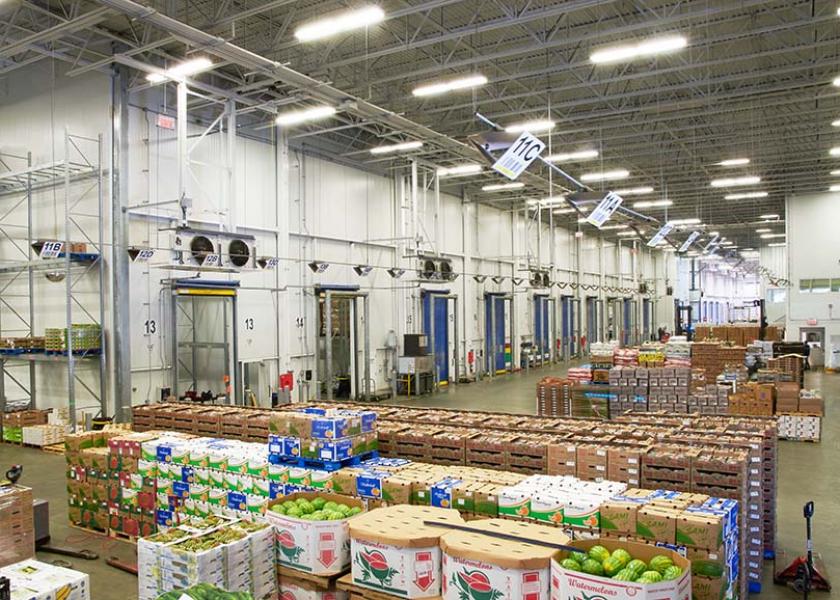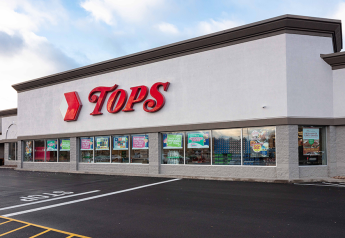Montreal produce industry stands up to continuing challenges

As Canada’s second-largest producer of fruits and vegetables, the province of Quebec is home to 650 vegetable growers and more than 3,500 businesses devoted to fruit and vegetable production. Each year, according to the Quebec Produce Growers Association (APMQ), the industry tallies $175 million CAD in export sales.
Much of this activity originates in the Montreal metropolitan area of southwest Quebec, a region distinguished by the resilience of its produce industry and its compact growing season.
“In Quebec, everything occurs in a very short period of time,” notes Patrice Léger Bourgoin, general director at APMQ, based at Place des Producteurs, or the Grower’s Place, at Villeray St. Michel Parc Extension. “For two-thirds of the products we’re growing, you start your season somewhere in late May or the beginning of June and everything is done at the end of October or early November.”
Among the region’s top crops are lettuce, carrots and onions. “On the East Coast of North America,” Bourgoin says, “Quebec is recognized as a one of the major producers of onions.”
During 2020 and 2021, Montreal’s produce industry faced numerous challenges, including a significant drop in farm gate values for many products, a spike in production costs and weather issues spurred by climate change.
Though the situation is similar today, produce suppliers around the world are experiencing similar issues, notes George Pistikoulis, president and CEO at Canadawide, a Montreal-based produce importer, wholesaler and distributor.
“It was a challenging year in Montreal,” he says, “but right now I’m in Spain talking to growers and importers from other parts of the world and it’s pretty much a worldwide phenomenon — inflation, a shortage of labor, weather changes. These are things we all have to adapt to.”
Opportunities amid climate change
In August 2021, extreme temperatures created problems for produce growers in eastern Canada. This year, Montreal growers faced heavy rains and invasive insects.
“Often we read in the paper that climate change will come, but it is already here,” says Bourgoin. Montreal experienced intense rainfall this year, along with an invasion of aphids from New York state that cost growers millions of dollars in crop damage.
Sophie Perreault, CEO at the Quebec Produce Marketing Association, notes that the 2022 harvest will likely be cut short for some crops due to early frost. “Some commodities are going to be stopped a little bit quicker this year,” she said.
As an importer, Pistikoulis has experienced impacts from shifting weather patterns around the world.
“There's less citrus available in California, for example, so we source more in Spain,” he said. “In turn, we supplement what we import from Spain with extra imports from Morocco, Egypt and Turkey. You just have to keep on digging.”
Climate change also brings opportunities for Montreal’s produce industry, said Bourgoin, including an extended growing season for some crops and the ability for growers to squeeze in an extra harvest or two during the same year.
APMQ is now looking at ways to fill the gaps created by weather issues in regions like California, which has recently been impacted by extreme heat and drought conditions.
“We are looking at the opportunity to ship more products,” said Bourgoin. “When our colleague farmers from the United States are unable to produce, we receive tons of calls because we have a terminal in Montreal and the New York border is just 25 kilometers away.”
Alain Paré, consultant and produce specialist for Forino Produce in Sainte-Clotilde-de-Beauce, is seeing produce buyers in the eastern U.S. turn to Quebec when California is unable to provide certain products.
“This year California was in a very bad position,” said Paré. “They're pulling a lot of iceberg lettuce and green onions. My personal opinion is that they could be in trouble in the future with the water problem and the extreme weather conditions they’re facing. I think we’re going have more opportunities in Quebec to supply the U.S.”
Product values and production costs on the rise
Another positive trend for the Montreal produce industry is a rebound in product prices, which dropped significantly between 2019 and 2020. The annual value for lettuce, one of Quebec’s highest-value crops, increased from $65 million CAD to $72.2 million between 2020 and 2021, according to Statistics Canada, the country’s national statistics agency. Likewise, carrot values grew from $46.9 million to $58.3 million and fresh dry onions increased from $41 million to nearly $47 million.
While this is certainly good news for Quebec’s produce growers, production costs are rising faster than the average farm sales price. “Not only have wages and salaries gone up, the same has happened with the cost of equipment, buying new trucks, buying new lifters, and buying boxes for our packaging program,” says Pistikoulis. “There’s inflation throughout, and ultimately, the only way to sustain that is to increase the margin that we're working with.”
In addition, growers are looking for ways to increase efficiency, such as adopting automation. “Fifty percent of our production costs are related to manpower,” said Bourgoin, adding that APMQ created a task force earlier this year to help accelerate the use of robotics.
Automation is also helping with the industry’s labor shortage, notes Pistikoulis. “I was at a Vegco onion farm in Quebec just a few weeks ago, and I was floored,” he says. “There’s virtually no human touch, from harvesting all the way to how the onions are bagged, stored and delivered to market.”
Paré says that the labor issue has been going on for years. “Sometimes we don't have enough workers in the spring and sometimes they’re coming too late,” he says. “The workers are very hard to get, so you have to try to get better equipment and use fewer workers if you can.”
One of the best ways to deal with the shortage of farm labor, said Guy Milette, executive vice president of international and business development at Courchesne Larose, a Montreal-based produce wholesaler-importer-exporter, is to focus on keeping good employees.
“Staff retention is more important than it has ever been,” he said. “For 50 years, we had access to as many employees as we needed and we were very selective. Today we have a hard reality. Since hiring is so difficult, retention is now the best way to be productive.”
Canadawide has changed the ways in which the company attracts and retains staff, from expanding employee searches beyond typical sources, to looking at new ways of brining in temporary foreign workers.
Preparing for future success
Despite the challenges of the past few years, Pistikoulis sees a bright future for Quebec’s produce industry. “We're all pretty resilient,” he says, and we're very fortunate to be in the fresh produce segment of the industry. Through the years we knew it was recession-proof; now we know it’s pandemic-proof.”
To better position themselves for success in the years to come, many of the region’s produce companies are taking steps to boost efficiency and operational control.
With this in mind, Canadawide purchased a second facility a little over a year ago that doubled its storage capacity to 14,000 pallets. The entire building can be refrigerated and includes multiple banana rooms that can also ripen avocadoes and mangos. Additional packaging space allows the company to bag citrus and top-seal other types of produce on site.
“We ran into a space issue in the last few years where we've been outsourcing some storage,” said Pistikoulis. “That never felt good because that’s out of our control. Now this is our space.”
Courchesne Larose’s acquisition of produce distributor J.B. Laverdure in 2018 allowed it to increase food safety and security by moving the wholesale operation to the old J.B. Laverdure location. In addition, Courchesne Larose has integrated its organic product line — handled by a sister organization for the last 20 years — within the main company.
“We now offer a full line of conventional and organic produce under the same roof,” says Milette, “sold by only one sales team and delivered in the same trucks.”







